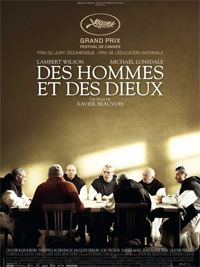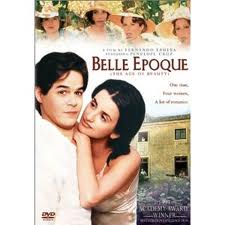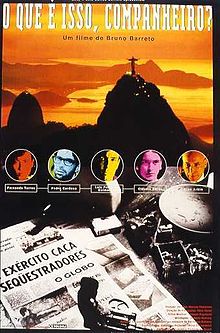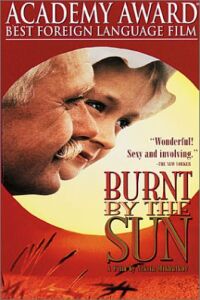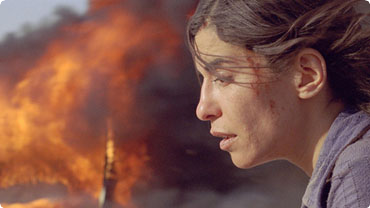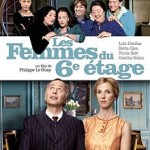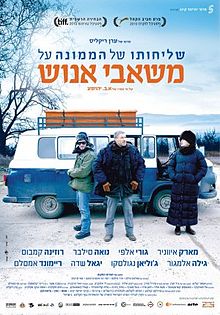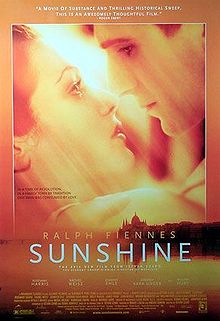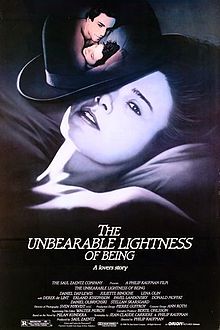 The Unbearable Lightness of Being is the film adaptation of the novel of the same name written by author Milan Kundera, who took refuge in France after the Soviet Army suppressed Czech’s freedom movement that took place in 1968 (the Prague Spring); this movie depicts the different fates of four people living through turbulent times with the Prague Spring of Czechoslovakia in the background.
The Unbearable Lightness of Being is the film adaptation of the novel of the same name written by author Milan Kundera, who took refuge in France after the Soviet Army suppressed Czech’s freedom movement that took place in 1968 (the Prague Spring); this movie depicts the different fates of four people living through turbulent times with the Prague Spring of Czechoslovakia in the background.
Tomas lives in Prague, and is young, handsome, and a skilled surgeon. He loves women and is loved by women, and he is a man who openly has relations with several women at the same time; he has a relationship with an artist Sabina, who is the only woman Tomas acknowledges understands him. One day, Tomas goes to a small spa town in order to perform surgery, and there he meets a young woman named Tereza. Tereza is an avid reader and loves reading Tolstoy, but she feels that none of her friends in the village understand her. When Tereza sees Tomas sitting and waiting on the same bench—among the many benches available—that she always sat on, and senses Prague culture in him, she becomes deeply entranced by Tomas and later follows him to Prague. Tomas, who appeared to be set on remaining single, is attracted to Tereza, and the two end up getting married.
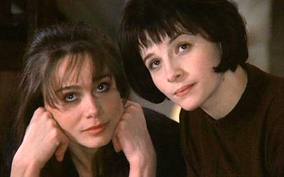 Tereza is inspired by Sabina and tries to become a photographer, but during this time, the Soviet Army invades Czechoslovakia in order to suppress the growing desire for freedom, and many people are murdered. Sabina, Tomas, and Tereza take refuge in Geneva. Tereza shows a Swiss magazine the photographs she took in the face of danger of the oppression by the Soviet Army, but people in Switzerland are already bored of the Prague Spring event, and she is told to bring more interesting photographs. Sabina meets a devoted, honest professor named Hans. Tereza thinks she is not a strong enough person to live in a foreign country, like Sabina and Tomas, and so she returns to Czechoslovakia. Tomas has to decide between staying in free Switzerland with Sabina and returning to his oppressed homeland Czechoslovakia to be with Tereza. Tomas decides to return to Czechoslovakia, but his passport is confiscated when he re-enters the country, so it is a one-way trip and he can’t return to free countries.
Tereza is inspired by Sabina and tries to become a photographer, but during this time, the Soviet Army invades Czechoslovakia in order to suppress the growing desire for freedom, and many people are murdered. Sabina, Tomas, and Tereza take refuge in Geneva. Tereza shows a Swiss magazine the photographs she took in the face of danger of the oppression by the Soviet Army, but people in Switzerland are already bored of the Prague Spring event, and she is told to bring more interesting photographs. Sabina meets a devoted, honest professor named Hans. Tereza thinks she is not a strong enough person to live in a foreign country, like Sabina and Tomas, and so she returns to Czechoslovakia. Tomas has to decide between staying in free Switzerland with Sabina and returning to his oppressed homeland Czechoslovakia to be with Tereza. Tomas decides to return to Czechoslovakia, but his passport is confiscated when he re-enters the country, so it is a one-way trip and he can’t return to free countries.
While Tomas was in Switzerland, the Soviet Army had successfully implemented oppressive measures, and Prague had become a completely different town. Tomas is categorized as an anticommunist, so he is deprived work as a surgeon and has to make a living as a custodian. Tereza is devastated by the transformation of Prague, and becomes depressed and considers suicide. The two move out to the countryside, adapt to their new life, and are able to find true happiness despite their modest lifestyle; the moment they find happiness, though, a tragedy occurs.
The appeal of this movie is that the depictions of the individual personalities and the relationships between Tomas and Tereza, as well as between Sabina and Hans, are very delicate, beautiful, and persuasive.
When Tomas and Sabina meet, a mirror is always used. This symbolizes the relationship of Tomas and Tereza as well as of Sabina and Hans. If I were to depict the relationships of the four people with a picture, Tomas and Tereza are lying in bed next to a large mirror. When Tomas looks at the mirror, Sabina—not Tomas—is reflected back. Then, Hans is lying down next to Sabina. When Tomas approaches the mirror, Sabina also approaches the mirror. When Tomas moves away from the mirror, Sabina also moves away. However, Tomas doesn’t need to break the mirror to be with Sabina. Tomas and Sabina are a man and a woman bound together like Siamese twins, tied by their souls. Even when they are apart, or even if they are both with someone else, their spirits are always joined.
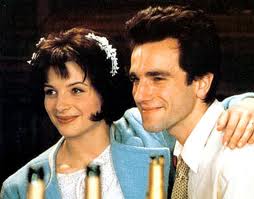 However, it is only Tereza that Tomas truly loves. Tereza is like the sun and illuminates everything, and when she is around, the world and other women look beautiful; but when she is gone, the world is dark, and other women don’t enter Tomas’s field of vision at all. Tomas is light and freewheeling, but his beliefs do not waver. Before the Prague Spring, he said to his friends who excitedly talked about politics, “I am not interested in politics at all.” However, during the oppression by the Soviet Union, people rapidly switched to protecting themselves, informing on each other, and hiding what they were feeling; on the other hand, Tomas, who refused to change himself, was oppressed as someone who was against the establishment. However, even though the job that he loved is snatched away, he remains as light and unwavering as ever.
However, it is only Tereza that Tomas truly loves. Tereza is like the sun and illuminates everything, and when she is around, the world and other women look beautiful; but when she is gone, the world is dark, and other women don’t enter Tomas’s field of vision at all. Tomas is light and freewheeling, but his beliefs do not waver. Before the Prague Spring, he said to his friends who excitedly talked about politics, “I am not interested in politics at all.” However, during the oppression by the Soviet Union, people rapidly switched to protecting themselves, informing on each other, and hiding what they were feeling; on the other hand, Tomas, who refused to change himself, was oppressed as someone who was against the establishment. However, even though the job that he loved is snatched away, he remains as light and unwavering as ever.
Tereza is influenced by Tomas and Sabina, who live lightly in the city (so it seems), and so makes a great effort to do so herself; she experiments with various things, but learns in the end that in order to be happy, she is the kind of person who needs to be rooted near nature. Although Tereza does not realize it, she is naturally very sexually attractive without trying, and Tomas is deeply attracted to her because of who she is naturally.
Sabina, while her and Tomas’s hearts are nearly identical, is a woman who earns a living with a paintbrush, while Tomas uses a scalpel to perform surgery. Although she is woman, she is more willing to live this vagrant lifestyle than men. She doesn’t know how or where in this large earth she will die, but she has the attitude that she’ll live holding onto her paintbrush with all her might, even if she dies by the side of the road. Honest and ethical Hans cannot help but be attracted to Sabina, who is completely different from himself.
I happened to watch The Unbearable Lightness of Being around the same time as the Norwegian Wood movie based on Haruki Murakami’s novel; although the two movies are set in the same time period (late 1960s) and depict a very similar theme, I thought it was interesting that the depiction and resolution were fundamentally different.
In Norwegian Wood, the society in Japan has peace without the fear of war, freedom, personal safety, and secure money to live a good life; yet somehow the youth have a locked up feeling, and they get wrapped up in socialism, believing it to be a ray of hope to save their society. The protagonist, who is of course the projection of Haruki Murakami, is not able to sympathize with the movement of the youth of his same generation, but his friends around him commit suicide one after another. The young people committing suicide have their parents’ love and are brought up in a blessed environment, but they heavily obsess over something, as if they are fixated on watching the hole of their stocking getting bigger and bigger every day. And so they commit suicide. The protagonist is also affected by this attitude, but after wandering, weeping until his nose dripped, and an overly dramatic journey of self-discovery, he decides, “I will live.”
In The Unbearable Lightness of Being, for the youth living in a society where freedom of speech has been snatched away and there is economic injustice, socialism is evil, and the youth wishes for Czechoslovakia to become a free nation. Tomas is not the kind of person who fixates on the negatives. Therefore, he is light, and even though he criticizes the system or another person, he doesn’t blame them. He lives life like a swan calmly floating on the surface of a turbulent lake without being affected by the waves. By doing so, he calmly finds happiness. When Sabina and Tomas meet in Geneva alone, Sabina had already decided to move further west, while Tomas had decided to return to Czechoslovakia, but they don’t say anything about this. Suddenly, Sabina utters, “This may be the last time we see each other.” Tomas’s facial expression changes just one millimeter, and he nods, saying, “That may be so.” It was indeed an eternal farewell. However, in The Unbearable Lightness of Being, nobody commits suicide. They each make every possible effort to survive through difficult times.
Both movies feature the music of the Beatles in a very important way. However, what the Beatles’ music conveys to the youth is completely different in the two movies. In The Unbearable Lightness of Being, the music of the Beatles symbolizes the desire for freedom, while in Norwegian Wood, it symbolizes the melancholia that they don’t understand the true nature of.


